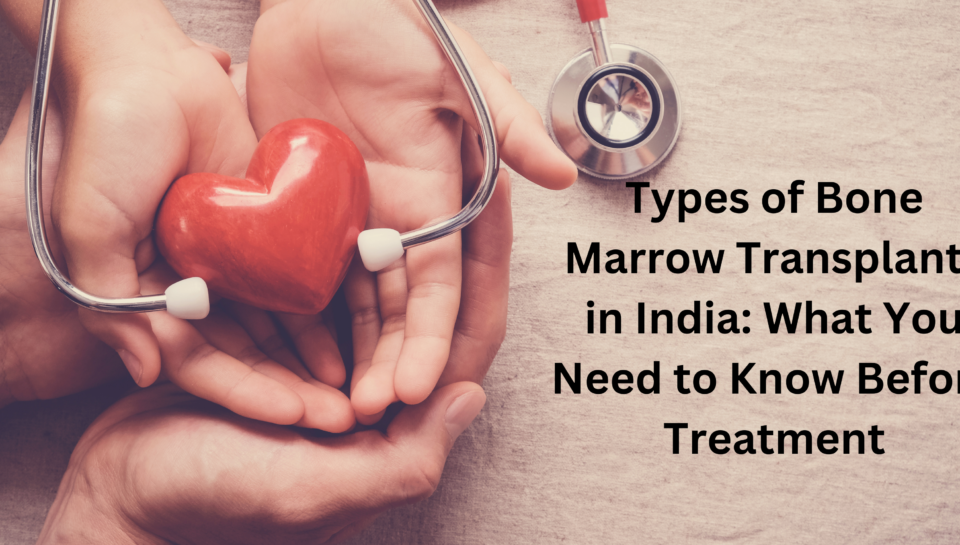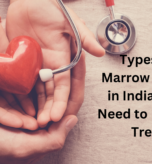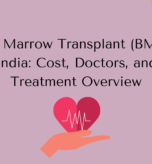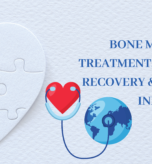Bone Marrow Transplant (BMT), also known as hematopoietic stem cell transplantation (HSCT), is a life-saving medical procedure for patients with severe blood disorders, cancers like leukemia, lymphoma, and various other blood-related diseases. It involves replacing damaged or diseased bone marrow with healthy stem cells to restore normal blood cell production. When it comes to BMT, there are several types, and the choice of procedure depends on the patient’s condition, the source of stem cells, and the overall health of the individual.
India has emerged as a leading destination for Bone Marrow Transplants due to its advanced medical facilities, experienced doctors, and cost-effective treatment options. In this blog, we will explore the different types of BMTs and how India has become a hub for these life-changing treatments.
Types of Bone Marrow Transplants
There are primarily three types of Bone Marrow Transplants:
1. Autologous Bone Marrow Transplant (Auto BMT)
In an Autologous Bone Marrow Transplant, the patient’s own stem cells are harvested before undergoing intensive treatment such as chemotherapy or radiation. The collected stem cells are then stored and reinfused into the patient’s body after their diseased or damaged bone marrow has been treated.
This type of transplant is often used for patients with blood cancers like lymphoma, multiple myeloma, and Hodgkin’s disease, where the patient’s bone marrow is healthy enough to regenerate after being exposed to chemotherapy or radiation. Since the stem cells come from the patient themselves, there is no risk of rejection, making it a relatively safer procedure.
2. Allogeneic Bone Marrow Transplant (Allo BMT)
In Allogeneic Bone Marrow Transplant, the stem cells come from a donor. The donor can either be a family member (usually a sibling) or an unrelated person found through a stem cell registry. Allogeneic BMT is typically recommended for patients with diseases like leukemia, aplastic anemia, and other serious blood disorders where the patient’s bone marrow has been severely compromised.
Allogeneic transplants are more complex than autologous transplants because of the risk of graft-versus-host disease (GVHD), where the donor’s immune cells attack the recipient’s body. This can be managed with immunosuppressive drugs, but it requires careful monitoring.
3. Umbilical Cord Blood Transplant (UCBT)
Umbilical Cord Blood Transplant is another type of allogeneic transplant where the stem cells are harvested from the umbilical cord blood of newborn babies. This option is often considered for patients who don’t have a matched donor or a sibling.
Umbilical cord blood is rich in stem cells and can be used to treat a variety of hematological diseases, including leukemia. The advantage of UCBT is that the cells from cord blood are less likely to cause GVHD because they are immature and not fully developed. However, this type of transplant can take longer to engraft, meaning it may take more time for the transplanted cells to start producing healthy blood cells.
Why Choose India for Bone Marrow Transplant?
India has become a prominent destination for patients seeking BMT due to several key factors:
- Affordable Treatment: The cost of BMT in India is significantly lower compared to Western countries, making it an attractive option for international patients.
- World-Class Hospitals: India is home to some of the best hospitals in the world, equipped with the latest technologies and highly trained specialists. These hospitals are well-known for their successful BMT procedures and cutting-edge treatments.
- Experienced Doctors: India has a pool of highly skilled hematologists and transplant specialists who have performed thousands of successful bone marrow transplants.
- Comprehensive Support: Medical tourism companies like BMT India provide end-to-end support, helping international patients with travel arrangements, hospital coordination, and post-transplant care.
Conclusion
Bone Marrow Transplant is a crucial procedure that can save lives, and the type of BMT recommended depends on the patient’s condition and the source of stem cells. Autologous, allogeneic, and umbilical cord blood transplants offer different advantages and are chosen based on the medical needs of the patient. India offers a blend of high-quality medical care, expert doctors, and affordable prices, making it one of the most sought-after destinations for BMT. If you’re considering Bone Marrow Transplant, India, with its advanced healthcare facilities and experienced specialists, is the right choice for your treatment journey.



